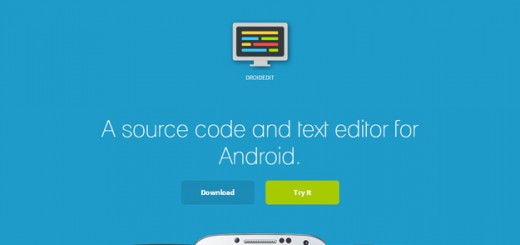LaTeX (spelled Lay-tek), is a document markup language. It is being widely used for preparation of documents in many fields, such as science, maths, physics, statistics, etc. With the help of LaTeX, you can render mathematical equations, symbols, tables, matrices, and much more, in your document.
People who have to deal with scientific papers and publishing with myriad of mathematical equations use LaTeX text editors for performing such actions. LaTex editors allow users to define formatting of text before hand through markup-level instructions and once the content is inserted, the document is ready to be exported as a PDF or any other file format.
So, here is the list of 12 Best LaTeX Editors that will allow you to prepare scientific papers in minutes with less or no efforts.
Take a look !!
1. TeXmaker
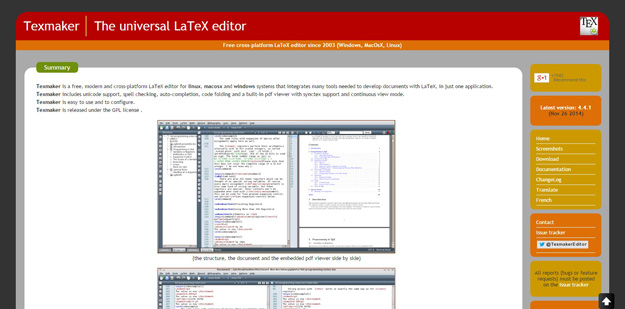
Texmaker is a free, modern and cross-platform LaTeX editor or linux, macosx and windows systems that integrates many tools needed to develop documents with LaTeX, in just one application. You can create various LaTeX documents, such as technical articles, bibliography and journals, very easily. The available options include, changing font attributes, adding mathematical symbols, creating LaTeX tables, and many other advanced options. Texmaker is easy to use and to configure. Texmaker is released under the GPL license .
2. TeXStudio
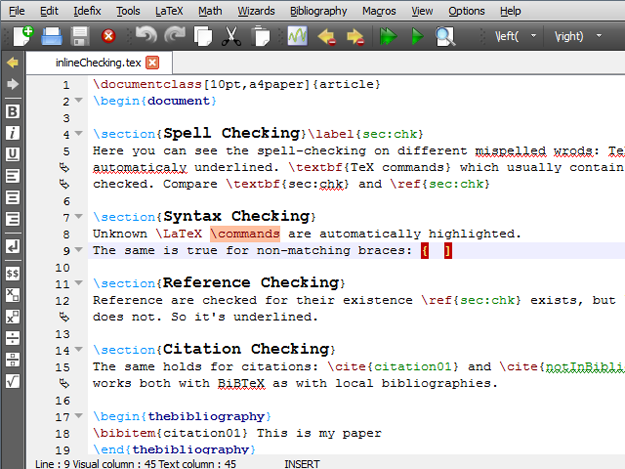
TeXstudio is another open-source and multi-platform LaTeX editor, which is quite popular among the academia. This tool is based on the open-source TeXmaker which we just talked about. TeXstudio is pretty much an extension of the former mentioned tool and added further support and features to it. Some of its key features are Syntax Highlighting, reference checking, multi-cursors and more than 1000 mathematical formulae included with it. Citations form a major component of scientific documents and TeXstudio provides support forLink overlay that converts text into links. The Assistant feature of TeXstudio makes it easy for anyone without the complete knowledge of LaTeX editors set up a file and place blocks of images or tables anywhere in the document.
3. LyX
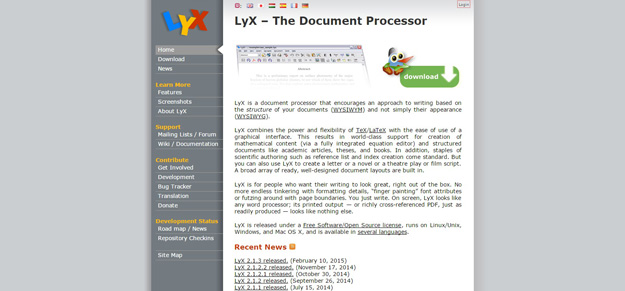
LyX is a document processor that encourages an approach to writing based on the structure of your documents (WYSIWYM) and not simply their appearance (WYSIWYG). LyX combines the power and flexibility of TeX/LaTeX with the ease of use of a graphical interface. This results in world-class support for creation of mathematical content (via a fully integrated equation editor) and structured documents like academic articles, theses, and books. In addition, staples of scientific authoring such as reference list and index creation come standard. But you can also use LyX to create a letter or a novel or a theatre play or film script. A broad array of ready, well-designed document layouts are built in.
4. TeXworks
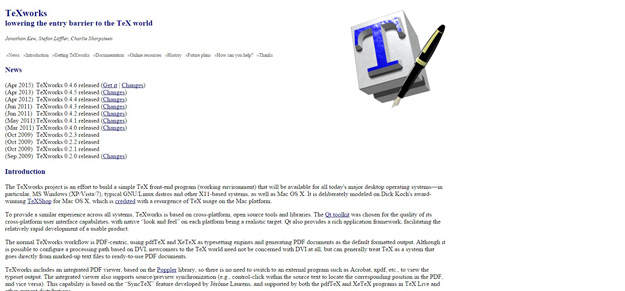
The TeXworks project is an effort to build a simple TeX front-end program (working environment) that will be available for all today’s major desktop operating systems—in particular, MS Windows (XP/Vista/7), typical GNU/Linux distros and other X11-based systems, as well as Mac OS X. TeXworks includes an integrated PDF viewer, based on the Poppler library, so there is no need to switch to an external program such as Acrobat, xpdf, etc., to view the typeset output. The integrated viewer also supports source/preview synchronization (e.g., control-click within the source text to locate the corresponding position in the PDF, and vice versa). This capability is based on the “SyncTeX” feature developed by Jérôme Laurens, and supported by both the pdfTeX and XeTeX programs in TeX Live and other current distributions.
5. TeXnic
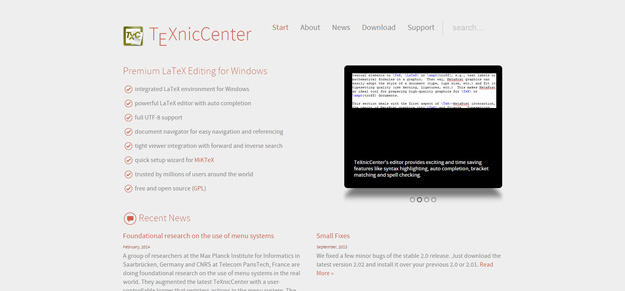
TeXnic is open source, and free to use. It is a light software, and the UI is really simple. This LaTeX editor has integrated mathematical symbols, and options to insert tables & pictures. The auto-completion feature for codes, makes compiling a document really easy. You can anytime run the source code, and preview your document in PDF, or DVI format.
6. ShareLaTex
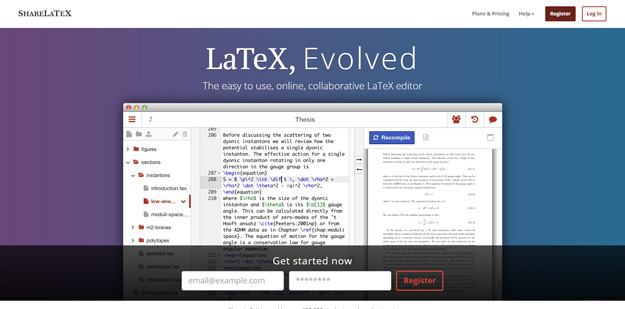
ShareLaTeX takes all of your LaTeX document editing tasks online and now you can edit your documents right from your web browser. One of its key features is the 400 templates that come built-in with it. Among these templates are Technical paper layouts, Scientific magazine articles, CV and more. You can simply choose one such layout and get started on editing your content without worrying much about the formatting associated with it.
7. WinShell
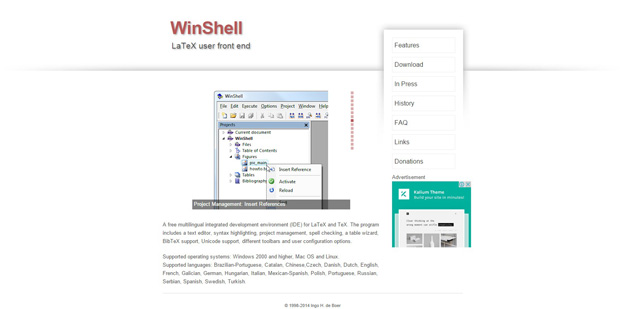
WinShell provides an integrated document development environment, in TeX and LaTeX. This is a free to use, cross platform LaTeX editor, which is extremely lite, and loaded with many features. Type your document in the integrated editing area. Features like mathematical tools, syntax highlighting, and spell check, help you with writing codes without any error. Compile your document for a preview in PDF format. This LaTeX editor doesn’t have an integrated PDF viewer, thus it requires a pre-installed PDF viewer to view any document.
8. Overleaf
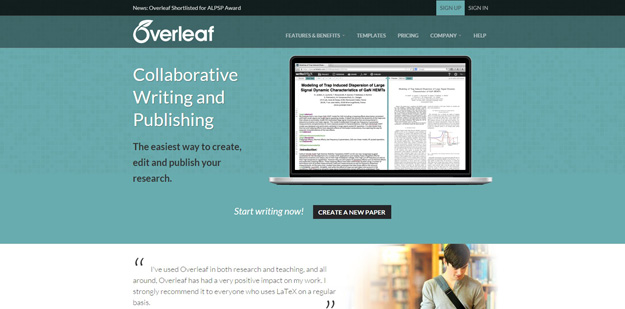
Another great online LaTeX editing tool is Overleaf. Trusted by over 200,000 academia worldwide, Overleaf is a great LaTeX editing tool with all the features that make your document creations easy. Overleaf comes with over 100’s of templates ranging from Lab report and Thesis to Resume/CV and formal letters. If starting over fresh isn’t something you’d consider, getting started with one of their many templates is an easy way to develop professionally formatted documents.
9. TeXpen
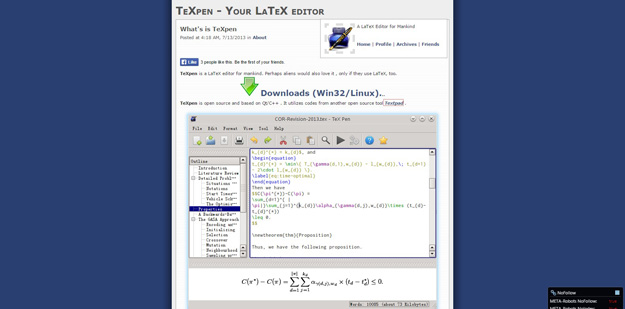
TeXpen is a free to use, open source LaTeX editor, loaded with various features. These features include real-time PDF preview, syntax highlighting, auto-completion, and theme/background option to protect your eyes. You can also insert tables, and images to your LaTeX document
10. Authorea
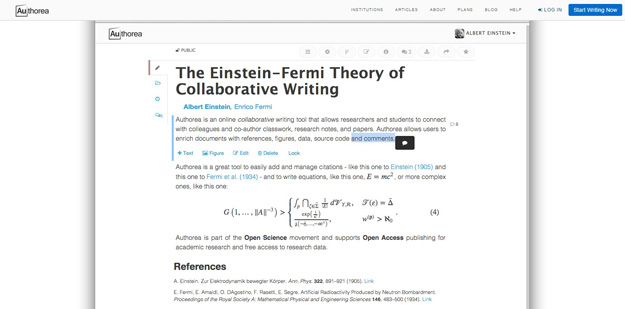
Authorea is a great online LaTeX editor, and possesses many of the great features offered by the previously mentioned tools. Ready-to-use templates, Collaboration tools, Document revision history, chat feature, auto-creation of References page, easy insertion of images, links, tables, etc., are some of its key features. Authorea also supports many file formats including LaTeX, HTML, Markdown and more. Creation of an Index page, Exporting document as PDF, Sharing it over social media, Quick Edit, Toggle on/off comments and word count.
11. Led
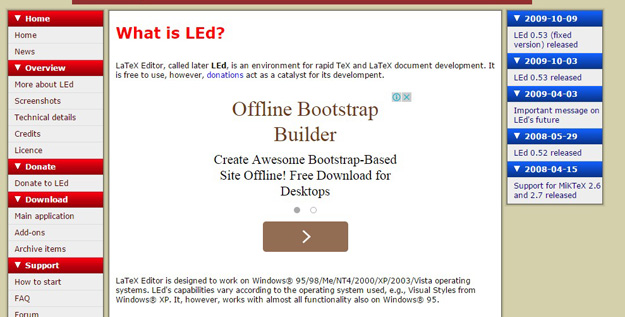
LaTeX Editor, called later LEd, is an environment for rapid TeX and LaTeX document development. It is free to use, however, donations act as a catalyst for its development. LEd offers a project manager, powerful editor, integrated spellchecker and thesaurus, build-in DVI viewer, descriptive hints for LaTeX commands, code complete mechanism, word wrapping, code folding, multilingual environment, and more. Nevertheless, LaTeX Editor is a small program.
12. TexitEasy
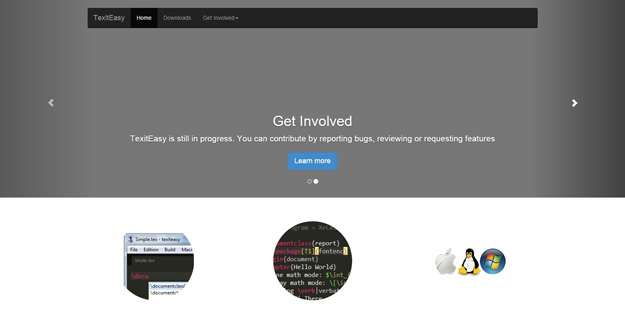
Texiteasy is a cross-platform, open source LaTeX editor. This LaTeX editor is rich with features. It has a simple interface, which is easy to work with. It has pre-installed macros, which lets you complete your document with more ease




